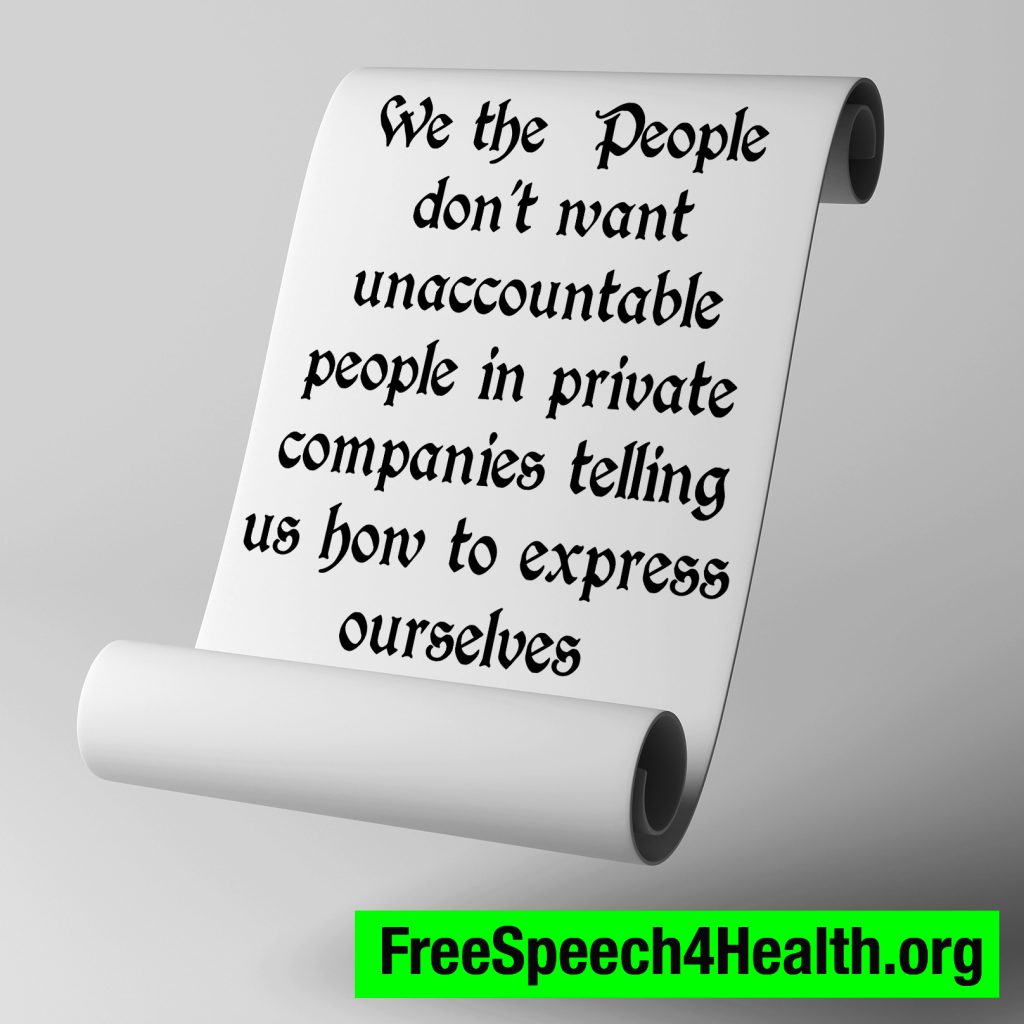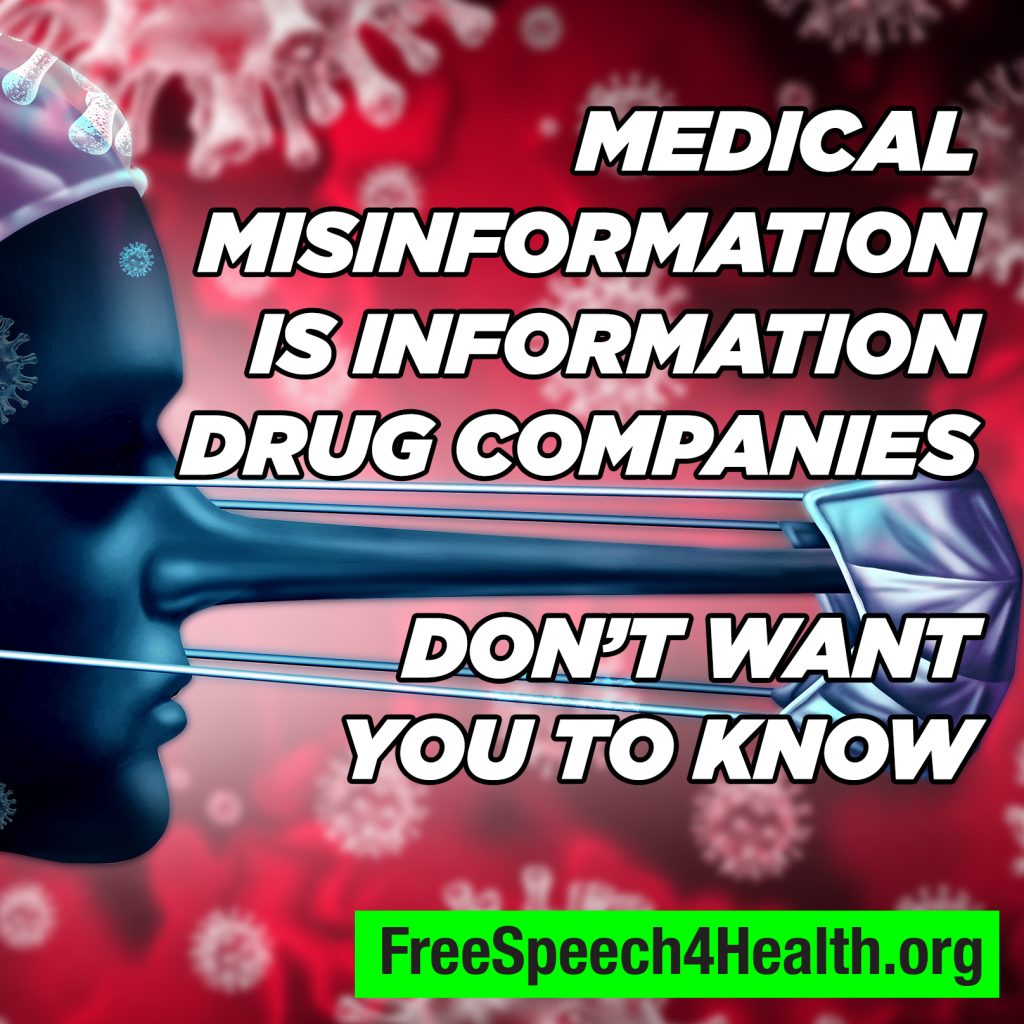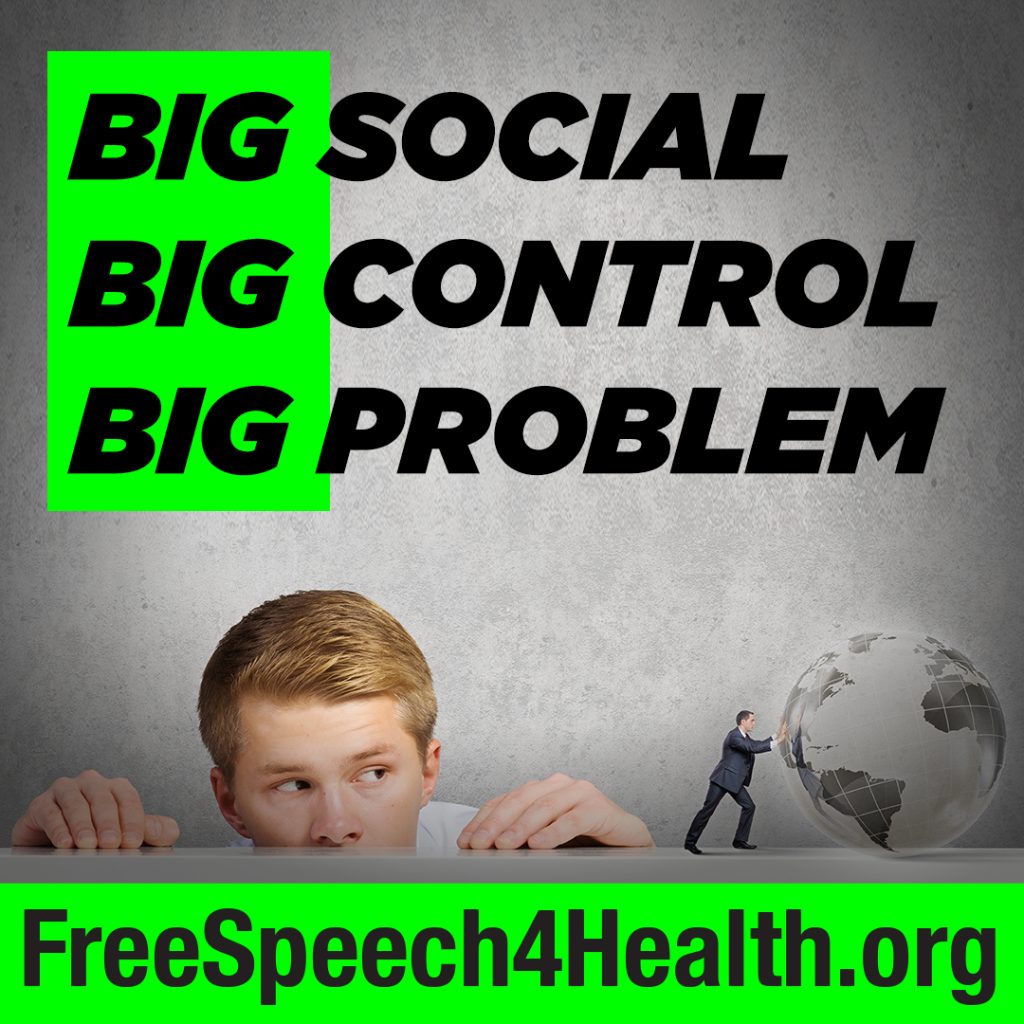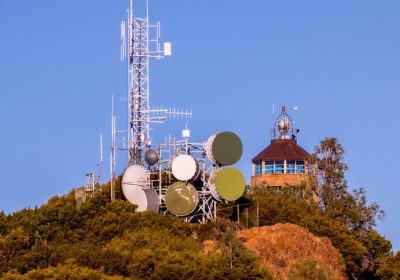The significance of Murthy v Missouri and why you should sign the FreeSpeech4Health petition. Action Alert!
By Rob Verkerk PhD, executive & scientific director, Alliance for Natural Health International and USA
This article was adapted from ANH International’s piece. Read the original here.
Listen to the audio version of this article:
Just do it!
Free speech isn’t an option if you want to live in an open, creative, advanced, free-thinking society. It’s a necessity. That’s why we’re leading the charge in our FreeSpeech4Health campaign, along with our growing partnerships with other organizations including Dr. Meryl Nass’ Door To Freedom, to amass 1 million signatures on a petition that is the first step in bringing pressure to bear on YouTube to change its medical misinformation policy—a policy that is already denying us life-saving information, especially about non-drug, natural health approaches.
If you haven’t signed and got the message out to your networks, please do so now!

>>> Why the petition matters, including access to videos, memes, a media pack (in multiple languages) and downloadable flyers that are ideal for sharing with your networks.
To help get the word out, the easiest thing to do is use one of our two campaign posters (available here and here) to drive people to the FreeSpeech4Health portal, that in turn takes you to the petition page. It will take you less than a minute. It’s a worldwide petition, so it doesn’t matter who you are or where you live. The only requirement is that you’re human.
If you haven’t decided if you want to sign or not—or you’re hungry for more information about what it’s all about—understanding more about the landmark Murthy vs Missouri case is an ideal primer.
Murthy v Missouri
Defendants’ conduct fundamentally transforms online discourse and renders entire viewpoints on great social and political questions virtually unspeakable on social media, “the modern public square.” Packingham v. North Carolina, 582 U.S. 98, 107 (2017)
— Extract from brief filed by Missouri et al on February 2, 2024

The US Supreme Court has heard oral arguments on the Murthy v Missouri case, and is expected to release a decision in the near future. This ruling will decide if the US government’s collusion with, or coercion of, social media giants in ways that limited the availability of health information to the public amounted to a violation of the First Amendment right to third party free speech. As stated by the petitioners (plaintiffs) in the case, the government engaged in “a broad pressure campaign designed to coerce social media companies into suppressing speakers, viewpoints, and content disfavored by the government.”
The case has been taken to the Supreme Court following a successful injunction granted by a District Court.

The cat is out of the bag
The parties bringing the original proceedings were the states of Missouri and Louisiana, along with 5 individual users of social media platforms, including ex-Harvard epidemiologist and biostatistician Martin Kulldorff, PhD and Stanford professor of medicine and health policy, Jay Bhattacharya, PhD.
>>> Read the petitioner’s brief filed December 19, 2023
>>> Read the brief of Missouri et al filed on behalf of Battacharya, Kulldorff filed on February 2, 2024
It’s hard to fully understand the significance of the case without reading the details of this coordinated censorship campaign contained in the court documents linked above. There is extensive first-hand evidence that the White House and US Surgeon General’s office pressured/forced/coerced social media platforms, threatening potential criminal prosecution for harboring communications that would lead to an “insurrection” or face “robust anti-trust program.” Social media owners were told they would be “held accountable” after the Biden administration stated publicly on July 16, 2021, that Facebook and other platforms were “killing people.” Read the evidence and it’s hard to not see it as pulpit bullying on steroids.
The essence of the Biden Administration’s defense can be simplified as follows; ‘we were just trying to help the social media companies combat the plague of medical and scientific misinformation, especially about the COVID-19 vaccines.’ Government officials argue that ‘they only pointed out content that violated the platforms’ policies to reduce harmful effects of online misinformation.’ This defense sounds crass given the apparent weight of evidence of coercion and pressure.
>>> Read the amicus brief of the Association of American Physicians and Surgeons
>>> Find links to all proceedings, in chronological order, in Murthy v Missouri via a dedicated page on SCOTUSblog.


Ideology, science and trust
The moderation as well as amplification and restriction of specific content reflects an ideological position, not a scientific one. It’s similar to what we’ve seen in the shadowbanning of high quality, expert content on keto diets and intermittent fasting that helped to inspire the FreeSpeech4Health campaign.
It’s also what we saw happening to any dissent on the official narrative relating to the origin of SARS-CoV-2, lockdowns, mask-wearing, or vaccine effectiveness or risks. These were all areas that were especially uncertain soon after their emergence, but as time, information and knowledge gathered, they became less uncertain. In all cases, the views that were immediately labelled as misinformation or conspiracy theory weathered the storm better than those that were consistent with the mainstream narrative.
There of course has been no mea culpa from the establishment. But what has happened instead is that the public has increasingly lost trust in the authorities who told them they were just ‘following the science.’ Critically, they won’t win back trust by clamping down ever harder on what they decide is misinformation or disinformation simply because it doesn’t reconcile with their positions.

What it’s all really about
Free expression is paramount when it comes to matters of scientific or medical controversy. Discourse is a prerequisite to ultimately resolving controversy and finding consensus that withstands dissent. It is only then we move towards an understanding of the world in which beliefs and ideologies converge with knowledge via a consistent logic structure, and we celebrate a united perspective over what we like to think of as scientific ‘truth’ (which is rarely, if ever, absolute) that we can declare peace and move on.

This freedom isn’t anarchical; we are advocating for true freedom —our own ability to exercise our free will and express ourselves in ways that don’t violate the freedom of others.
And that’s the very balance that needs to be sought in our campaign to pressure Big Social and others who moderate content on the public airwaves with a view to co-creating future-fit medical misinformation policies.
Ones we hope are informed by the learnings from Murthy v Missouri, regardless of the final ruling that we must recognize may be influenced more by the ideologies of the in-group, rather than by objective science or law.



